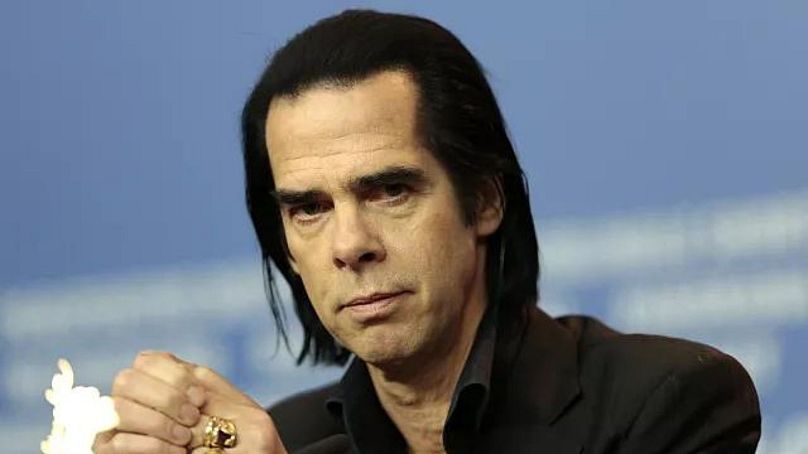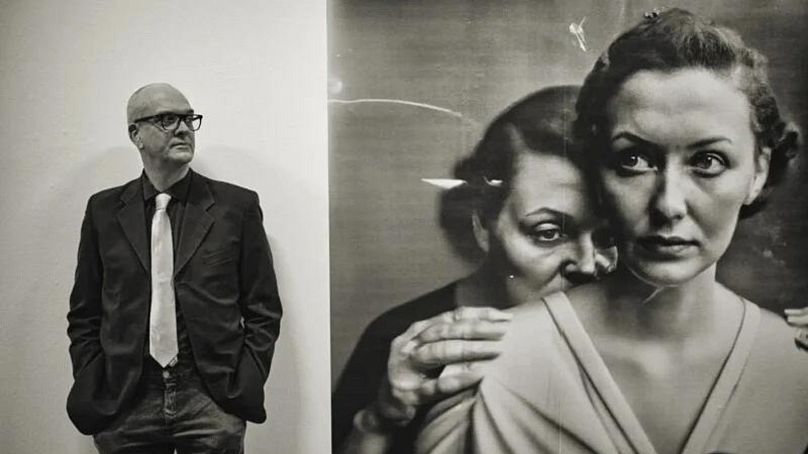Nick Cave has shared his views on how “highly problematic” art can be enjoyable and the growing dangers of AI
In a recent interview, Nick Cave outlined how art can be both problematic and enjoyable, using The Bad Seeds song ‘Stagger Lee’, released on the 1996 album 'Murder Ballads', as an example.
The “highly problematic” track is a take on a traditional folk song “Stagolee” about the African-American murderer “Stag” Lee Shelton.
During the UnHerd Club interview host Freddie Sayers asked the singer-songwriter: “Does that happen to you? The second-guessing, the self-censoring?”
Cave replied: “You always think: ‘Is this a good line or a bad line?’ But I never think in terms of whether it’s offensive or not. So no, I don’t feel that I do that. However, I do feel a kind of wet blanket has been thrown over art in general, and this is just not good.”
Regarding the wet blanket comment, Cave delved further: “What is the wet blanket? Well, a squeamish, censorious, merciless idea that there are certain things that you can get away with saying and certain things that you can’t get away with saying.”
He continued: “But I get tired of hearing people say: ‘Well, you can’t say this; I think this, but you can’t say this.’ That’s reflective of a mood, but I don’t think it’s true. I don’t think there are things that you can’t say. You just need to take the consequences of saying certain sorts of things.”
“Now these consequences are brutal, and merciless, and unjust sometimes, and it’s distressing to see these things happen. But I work in songwriting, and the form is abstract in its nature.”
Cave used the song ‘Stagger Lee’ as an example, by saying: “There’s a particular song of mine called ‘Stagger Lee’. This is a famous Bad Seeds song, and it’s offensive on many, many levels. I won’t go through all the different sorts of people that it offends, but it’s pretty much everybody. It’s a highly problematic song. It is sort of spoken-sung over this crawling, predatory music.”
He concluded: “But in all my days of playing ‘Stagger Lee’, and that’s hundreds of times of looking out into the audience, I have never seen anybody looking askance or offended at it. They’re just swept up within the music itself. So all sorts of things can be said in music and art that’s problematic, but at the same time just hugely enjoyable.”
AI: “It cannot create a genuine song”
Nick Cave has always been vocal about his craft and earlier this year, he shared his take on songwriting using artificial intelligence on his The Red Hand Files blog.
Cave wrote that “with all the love and respect in the world,” AI songwriting is “bullshit” and “a grotesque mockery of what it is to be human”.
“Suffice to say, I do not feel the same enthusiasm around this technology. I understand that ChatGPT is in its infancy but perhaps that is the emerging horror of AI – that it will forever be in its infancy, as it will always have further to go, and the direction is always forward, always faster.”
He went on to describe ChatGPT as an exercise in “replication as travesty” and that while it may be able to write a speech or an essay, “it cannot create a genuine song.”
“ChatGPT’s melancholy role is that it is destined to imitate and can never have an authentic human experience, no matter how devalued and inconsequential the human experience may in time become.”
AI: An anti-artist tool?
The advent of new AI models, such as ChatGPT, Midjourney and DALL·E, allow anyone to generate intricate and realistic images based on artworks found online in a matter of seconds, by simply typing a few words into a text box.
These advancements have generated uproar, leaving many artists concerned about their livelihoods, questioning why people would continue to pay for their creations when they can generate similar art themselves. It has also led toa growing frustration with the way society devalues art. Many are fighting back, with a group of San Francisco artists, including cartoonist Sarah Andersen and illustrator Karla Ortiz, taking legal action to reclaim copyright and consent by filing a class-action lawsuit against DreamUp, Midjourney, and Stable Diffusion.
Only this week, an entry into the World Photography Organization’s Sony World Photography Awards stirred up fresh controversy around the topic of AI-generated art.
German photographer Boris Eldagsen entered his piece “The Electrician” into the art contest and won 1st Prize in the Creative Category. However, the winning image was actually generated by AI, using DALL-E 2. Eldagsen wanted to make a point and opted to turn down the prize, because his image wasn't a real photo.
He stated that he was looking to test if “competitions are prepared for AI images. They are not.”
“Participating in open calls, I want to speed up the process of the Award organizers to become aware of this difference and create separate competitions for AI-generated images,” said Eldagsen.
Many rightly fear that AI-generated art will undermine and potentially destroy the work of artists.
“I am not against artificial intelligence, I want to make that clear,” Spanish artist Amaya Díaz told Euronews Culture, referring to the tool Lensa. “If it’s a tool for us to use, and if people learn to value what we put in our work, I think it will be fine.”
However, being an artist doesn’t resume itself to imitation and these AI-generated “artworks” have the capacity to feel anti-artist.
“We as artists are very used to our work being used without consent," said Díaz. "I think the reason this is becoming such a big deal is because we are very exhausted.”













